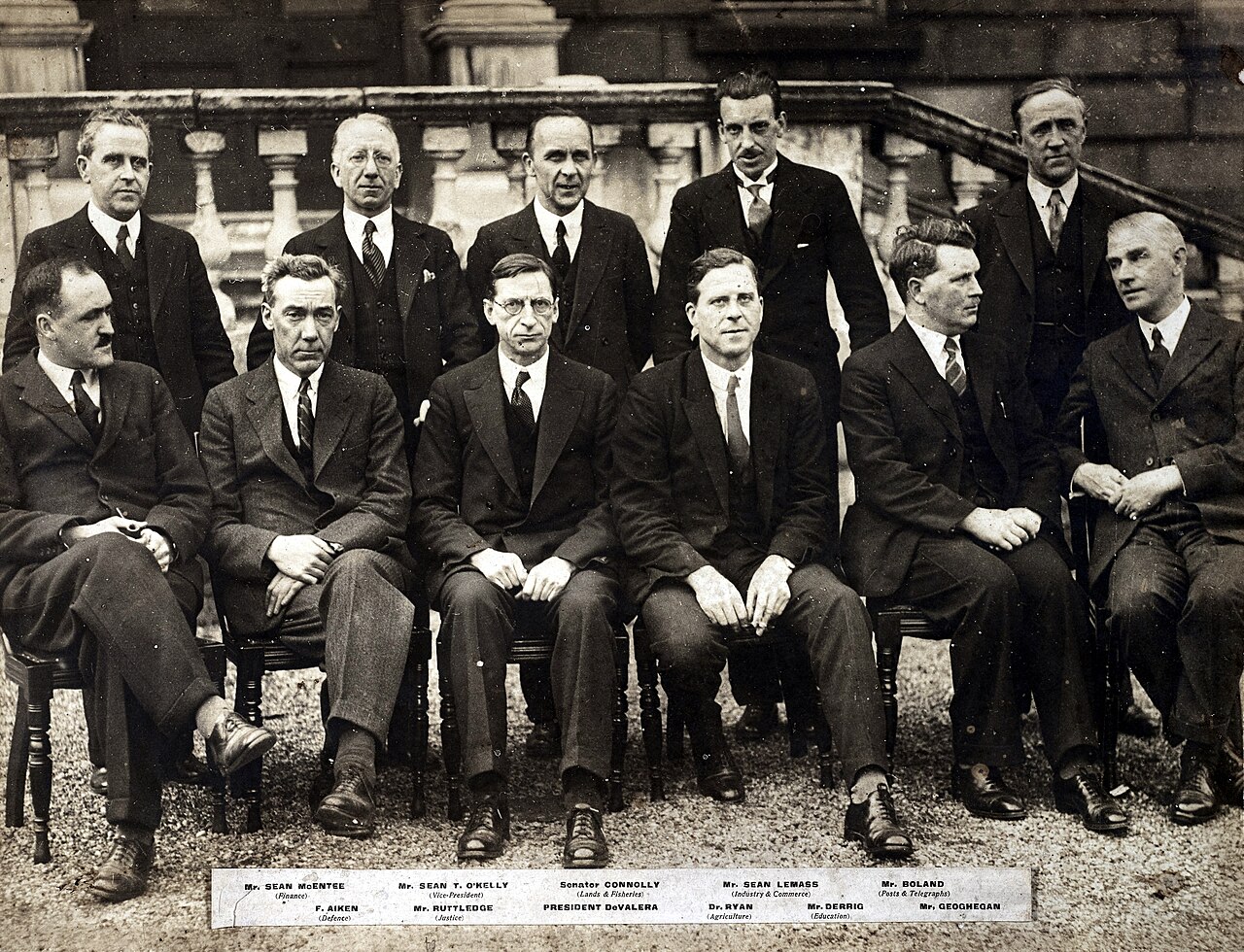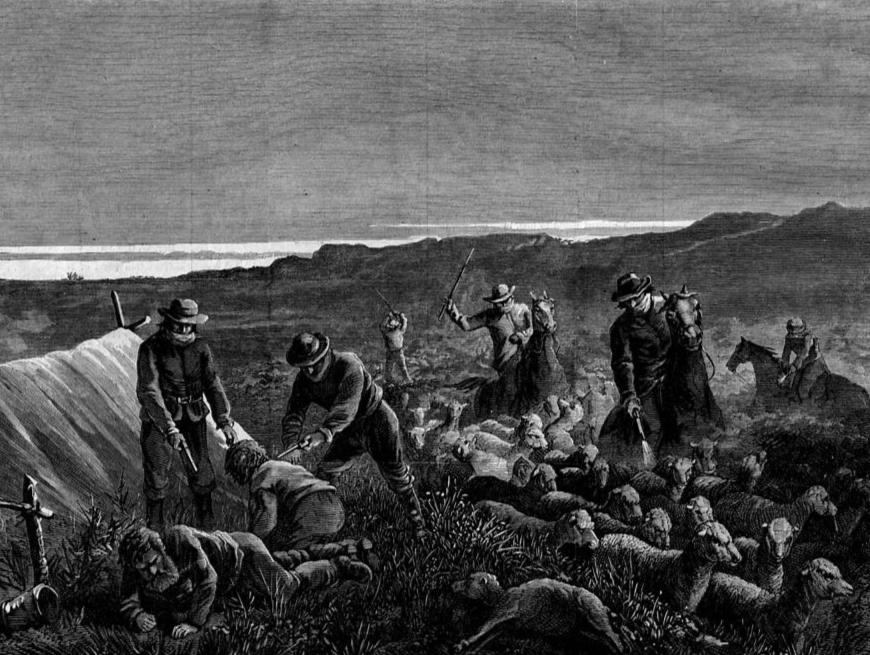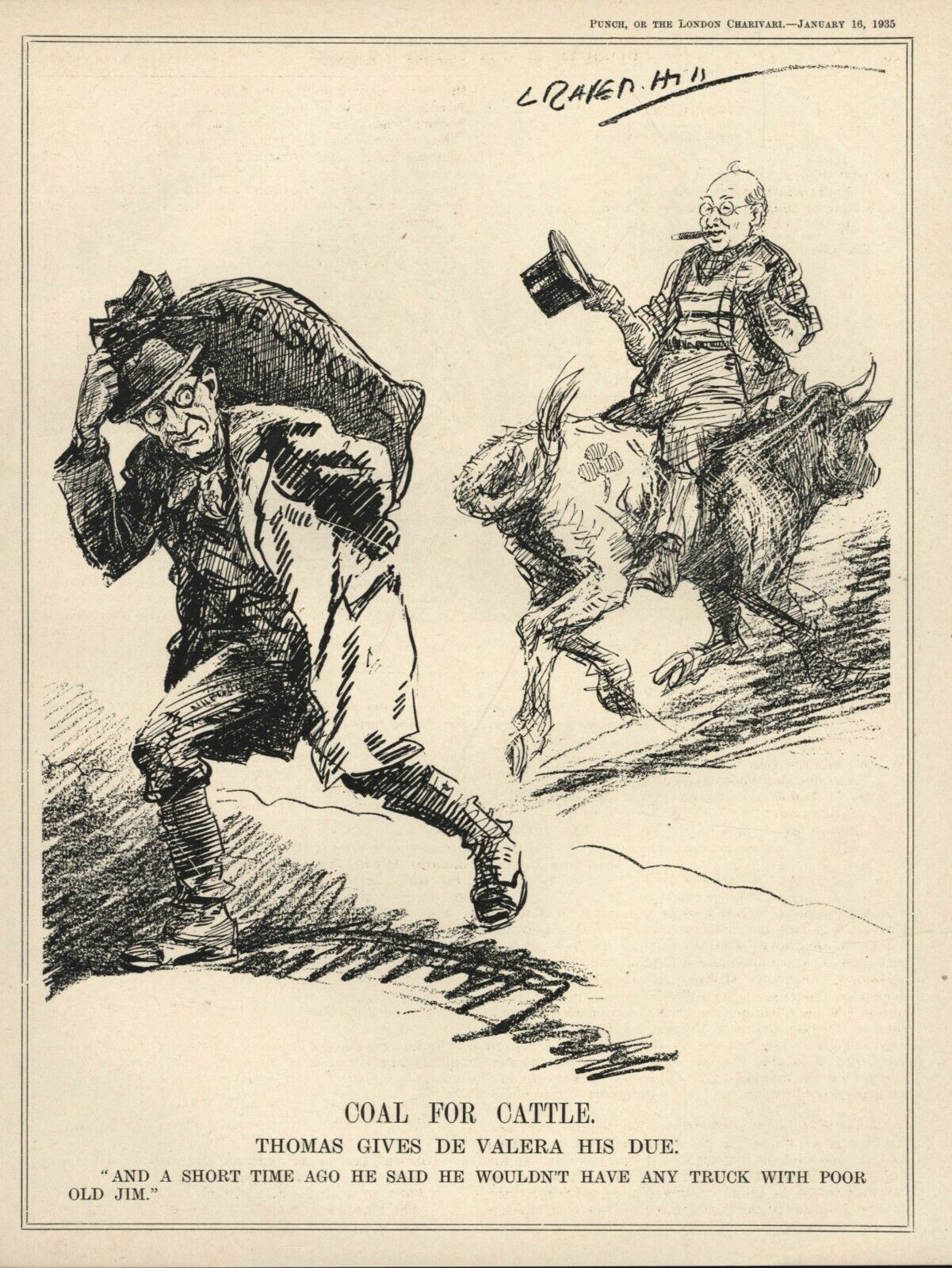Photo AI
Last Updated Sep 27, 2025
FF and the Economy - Key Details Simplified Revision Notes for Leaving Cert History
Revision notes with simplified explanations to understand FF and the Economy - Key Details quickly and effectively.
228+ students studying
4. FF and the Economy - Key Details
The Economy Under Fianna Fáil
- Éamon de Valera, the leader of Fianna Fáil, was more focused on foreign relations and Anglo-Irish affairs than on economic matters
- He trusted three key ministers to manage the economy: Seán MacEntee (Finance), Seán Lemass (Industry and Commerce), and James Ryan (Agriculture). Their work was influenced by de Valera's goal of making Ireland more independent.
- Fianna Fáil had a few main goals for the economy:
- Protect and grow Irish industries.
- Make the best use of Ireland's resources.
- Reduce Ireland's reliance on Britain by encouraging self-sufficiency.
- Stop paying land annuities (a type of debt repayment) to Britain.

Influences on Fianna Fáil's Economic Policy
Three main factors shaped Fianna Fáil's economic policies:
- Global Economic Trends
- During the global recession, many countries were moving away from free trade and embracing protectionism (shielding their industries from foreign competition).
- Ireland, however, was one of the few countries in Western Europe that still had free trade in 1932. But even before Fianna Fáil came to power, the previous government had already started protecting some Irish industries.
- Pursuit of Sovereignty
- Fianna Fáil wanted to reduce Ireland's economic dependence on Britain as part of its goal of achieving greater independence.
- Treaty Dispute
- Fianna Fáil's desire to dismantle the Anglo-Irish Treaty included refusing to pay Britain land annuities. This decision had a major impact on the economy, leading to what is known as the "economic war."
The Anglo-Irish Trade War
-
The British government introduced land acts in the late 19th and early 20th centuries to help Irish farmers buy their land. In 1926, an agreement was made for Ireland to collect £3 million a year to pay off these debts, known as land annuities.
- By the mid-1920s, the land annuities became a point of contention between Ireland and Britain. Some Irish farmers struggled to pay, leading to conflicts known as the "cattle wars." Fianna Fáil campaigned against making these payments to Britain.

- By the mid-1920s, the land annuities became a point of contention between Ireland and Britain. Some Irish farmers struggled to pay, leading to conflicts known as the "cattle wars." Fianna Fáil campaigned against making these payments to Britain.
-
When Fianna Fáil came to power in July 1932, de Valera announced that Ireland would stop paying the £1.5 million due to Britain. With the world in a deep economic depression, Ireland needed this money.
-
De Valera argued that Ireland had never agreed to this financial arrangement, so they shouldn't be bound by it.
-
Britain, angered by this decision, imposed taxes on Irish goods like cattle, butter, and poultry. In response, Ireland placed tariffs on British imports.
-
This back-and-forth retaliation became known as the economic war. Both countries suffered economic damage, with Ireland losing significant income from exports.
-
To reduce the impact, Ireland's government took several steps to support its people, such as halving the land annuities farmers had to pay.
Agriculture
- Agriculture was hard hit by the economic war, but problems were already present. Many farms were small, with most having less than 30 acres.
- The government encouraged a shift from cattle farming to crop growing to make Ireland more self-sufficient and provide more jobs for farm workers.
- Importing flour and wheat was also strictly controlled to support this change.
Industry
- The Fianna Fáil government faced many challenges in boosting Ireland's industry. In the 1930s, efforts were made to make Ireland more self-sufficient despite the global economic crisis.
- The government introduced tariffs and provided grants to encourage the growth of industries such as textiles, footwear, and bakeries.
- The goal was to create more jobs and reduce the number of unemployed people.
- However, the Irish banking system wasn't strong enough to support big industrial projects.
- Most of Ireland's financial reserves were held in Britain, and Fianna Fáil eventually set up a Central Bank in 1942 to address this issue.
- The government also founded the Industrial Credit Corporation (ICC) in 1933 to help new companies with investment advice, though it couldn't finance large projects.
- Other semi-state bodies were also established during this time, like the Turf Development Board (Bord na Móna) in 1934, Aer Lingus in 1936, and the Irish Tourist Board in 1939.
Social Policy
- Fianna Fáil introduced new social policies to support the less well-off. They focused on providing unemployment relief, building affordable housing, and improving medical care.
- The Unemployment Assistance Act of 1933 helped people who needed medical care, and in 1935, additional support was given to widows, orphans, and elderly people.
- Housing was a major issue, especially in crowded cities. Between 1932 and 1938, 70% of new houses were built by the government to help families move out of overcrowded slums.
The Coal-Cattle Pact 1935
- Between 1932 and 1934, there was a significant trade deficit between what Ireland imported and exported, largely due to the economic war.
- To address this, Ireland signed the Coal-Cattle Pact with Britain in January 1935. This agreement allowed Ireland to import coal from Britain while exporting more cattle there.
- The pact was renewed in 1936 and 1937, helping to stabilise trade between the two countries.

500K+ Students Use These Powerful Tools to Master FF and the Economy - Key Details For their Leaving Cert Exams.
Enhance your understanding with flashcards, quizzes, and exams—designed to help you grasp key concepts, reinforce learning, and master any topic with confidence!
284 flashcards
Flashcards on FF and the Economy - Key Details
Revise key concepts with interactive flashcards.
Try History Flashcards36 quizzes
Quizzes on FF and the Economy - Key Details
Test your knowledge with fun and engaging quizzes.
Try History Quizzes29 questions
Exam questions on FF and the Economy - Key Details
Boost your confidence with real exam questions.
Try History Questions27 exams created
Exam Builder on FF and the Economy - Key Details
Create custom exams across topics for better practice!
Try History exam builder117 papers
Past Papers on FF and the Economy - Key Details
Practice past papers to reinforce exam experience.
Try History Past PapersOther Revision Notes related to FF and the Economy - Key Details you should explore
Discover More Revision Notes Related to FF and the Economy - Key Details to Deepen Your Understanding and Improve Your Mastery
96%
114 rated
Fianna Fail in Government (1932-39)
The 1933 Election and Fianna Fail's Approach to Key Policies
333+ studying
194KViews96%
114 rated
Fianna Fail in Government (1932-39)
The Blueshirts and the Establishment of Fine Gael
317+ studying
197KViews96%
114 rated
Fianna Fail in Government (1932-39)
FF Foreign Policy and Anglo-Irish Relations
246+ studying
180KViews96%
114 rated
Fianna Fail in Government (1932-39)
FF and the Economy - Key Details
342+ studying
182KViews